Success stories from seed grant innovation awardees of the 5th Mekong ICT Camp 2017

One of the highlights of last year’s edition of the 5th Mekong ICT Camp 2017 hosted by Open Development Cambodia was the “Seed Grant Innovative Award”, endowed with 3,000$ for each of the five awarded teams. About half a year after the grant receivers were ...
Celebrating the World Statistics Day 2020!

October 20th 2020 marks the third World Statistics Day, a day that brings together communities around the globe to celebrate and reiterate the importance of statistics. Through its Resolution 69/282, the United Nations (UN) General Assembly established the celebration of The World Statistics Day every ...
National government
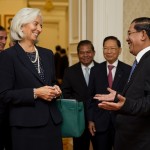
Cambodia is a constitutional monarchy. According to the 1993 Constitution, although he is the head of state, the king has very limited powers compared to the prime minister, the head of the government. Unlike the 1947 Constitution, power does not come from the king but ...
Plants
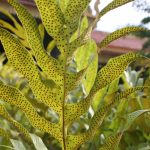
Although there are often new discoveries,1 a global lack of up to date data on botanical research makes plants biodiversity hard to assess in Cambodia. Compared to neighboring countries, the number of plant species is low, mostly due to the relative country’s flat landscape.2 Botanical knowledge ...
Coal
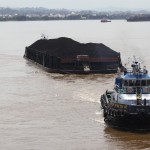
Although exploratory work has indicated the presence of modest coal resources in northern Cambodia, no commercial-scale mining has yet begun. The coal used in electricity generation and for other purposes is imported.A coal barge from Samarinda coal mine on the Mahakam river. Indonesia, Borneo. Photo ...
Mining
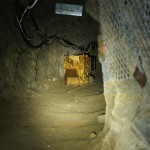
The mining sector in Cambodia is mostly undeveloped, and active mining enterprises are typically small-scale quarries producing materials for construction, such as laterite, marble, granite, limestone, gravel and sand. There is no industrial-scale extraction of minerals, although many exploration licenses have been granted to ...
The hybrid workshop on the open of extractive industrial and environmental data for a better economy
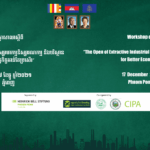
On December 17, 2021, Open Development Cambodia (ODC), in collaboration with the Cambodia Indigenous Peoples Organization (CIPO), Cambodia Indigenous Women Association (CIWA), and Cambodia Indigenous People Alliance (CIPA), and other relevant local NGOs, hosted a hybrid workshop on the open of extractive industrial and environmental ...
ODC’s insight from The Asia Pacific Internet Governance Academy 2023

The Asia Pacific Internet Governance Academy (APIGA 2023) was scheduled for five days from 24-28 July 2023 at Hotel President, Seoul, South Korea. The APIGA originally started in 2016 with an aim to equip participants with the knowledge and skills to participate in Internet policy-making ...
Environmental impact assessment (EIA): importance and opportunity to engage the local community
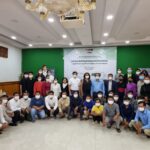
The opening of the Cambodian economy in the 1990s and the new Investment Law (2021) encouraged investment in development projects in a range of sectors, including extractive industries, physical infrastructure, agriculture, hydropower, and ecotourism, among others. These sectors are obligated to carry out the Environmental ...
National open data conference 2024: Open government data for inclusive development

The Open Development Cambodia Organization (ODC) and The Asia Foundation are partnering to organize the first "National Open Data Conference 2024: Open Government Data for Inclusive Development" on the 26th and 27th of March 2024, at the CADT Innovation Center, Phnom Penh, Cambodia. ...
Consultation Workshop on Fisheries Conservation Areas
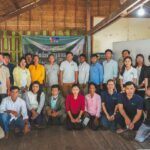
By 2022, there are 447 community fisheries across the country, and 46 community fisheries are located in the coastal areas. There are 5 registered communities located in Kep while 7 out of 10 communities in Kampot have been registered. In Preah Sihanouk, 13 out of ...
Vocational education
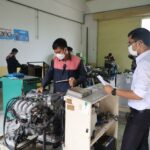
By definition, Vocational education refers to the program that enables people to acquire highly transferable and development skills. It also grants people the necessary technical skill for their desired career.43 Cambodia’s vocational education plays an important role during the country’s economic structural transition and the ...
Fishing, fisheries and aquaculture
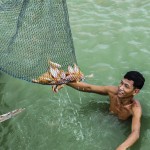
Cambodian fish farmer checking on fish quality. Photo by U.S. Agency for International Development (USAID), taken on 16 October 2012. Licensed under CC BY-NC-ND 2.0.Cambodia’s inland capture fisheries are among the largest in the world. The fishing industry encompasses subsistence, commercial and recreational fishing, as ...
Energy for transport

In Cambodia, petroleum is traditionally the main source of energy for transportation. The petroleum fuels used for transportation include gasoline, diesel, heavy fuel and fuel oil. ...
Budget
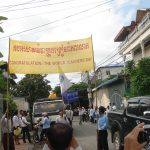
Cambodian Independent Teachers’ Association and Free Trade Union of Workers of the Kingdom of Cambodia celebrated the World Teacher Day from Cambodia. Photo by Education International, taken on 5 October 2009. Licensed under CC BY-NC 2.0Cambodia’s national budget determines state expenditures and revenues. It is ...
Health center budget
Access to information and open budgets is the first component of the Implementation Plan for the Social Accountability Framework (I-SAF).154 The other three components are citizen monitoring, facilitation and capacity building, and learning and monitoring.155 Three types of local services providers are at the focus: ...
Ministry of Women's Affairs
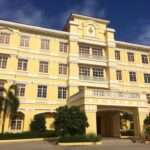
Ministry of Women’s Affairs. Photo taken from the Ministry’s Facebook Page, taken on 17 September 2016.EstablishmentUnder Royal Decree No. NS/RKM/0197/22, the Ministry of Women’s Affairs was formally established on 24 January 1996. The Ministry became the Ministry of Women and Veteran’s Affairs under the Royal ...
Forests and forestry

Cambodia’s forests have seen a significant reduction of total forest and dense forest cover in recent years, the growth of plantations, particularly rubber, and an ongoing problem with illegal logging. ...
Administration
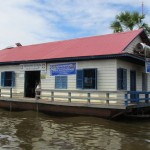
Cambodia’s sub-national administration consists of three tiers: capital city/province, municipality/district and sangkat/commune. Phnom Penh is the capital, and there are 24 provinces, 159 districts (including 26 municipalities and 12 khans), 1406 communes and 227 sangkats. ...



